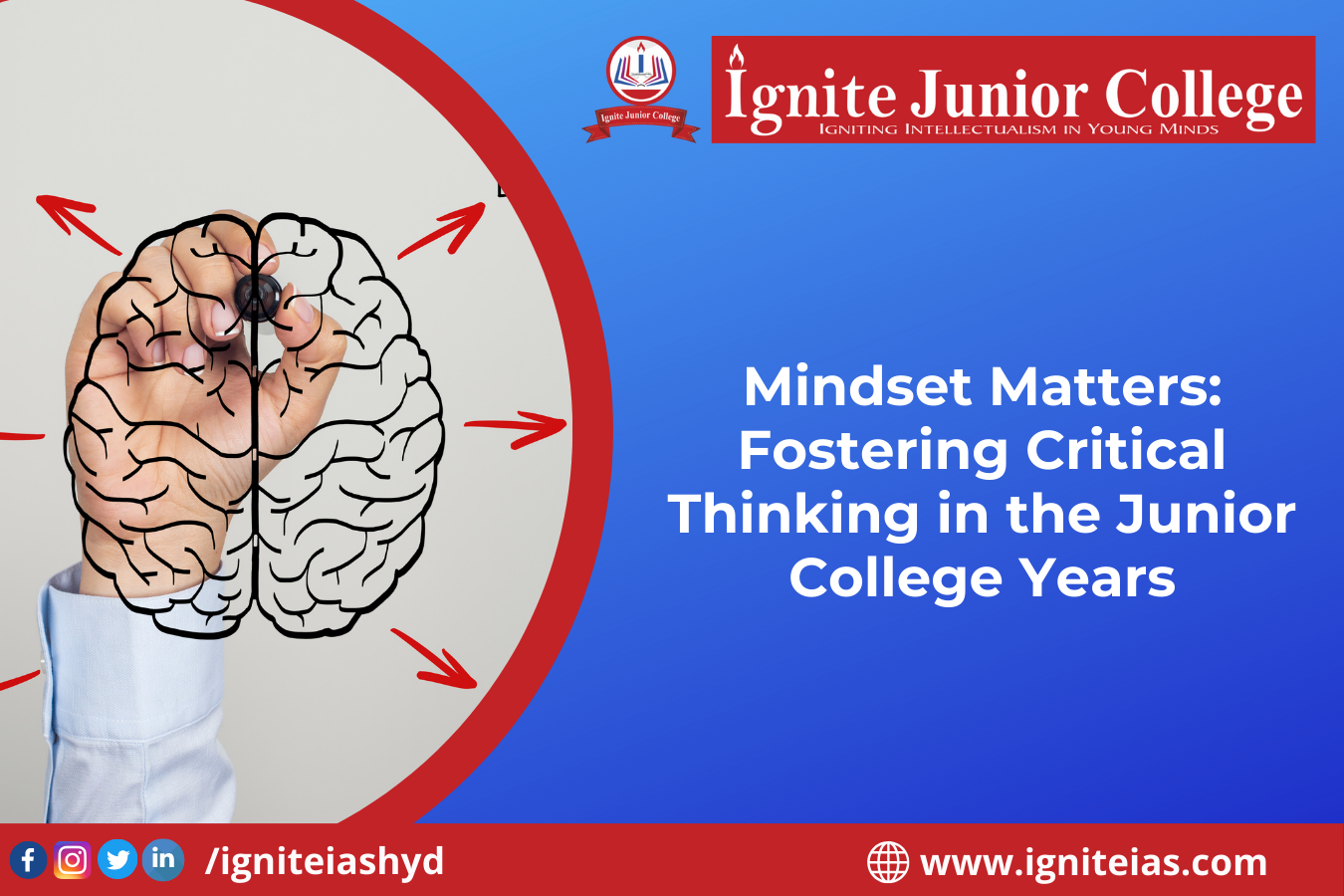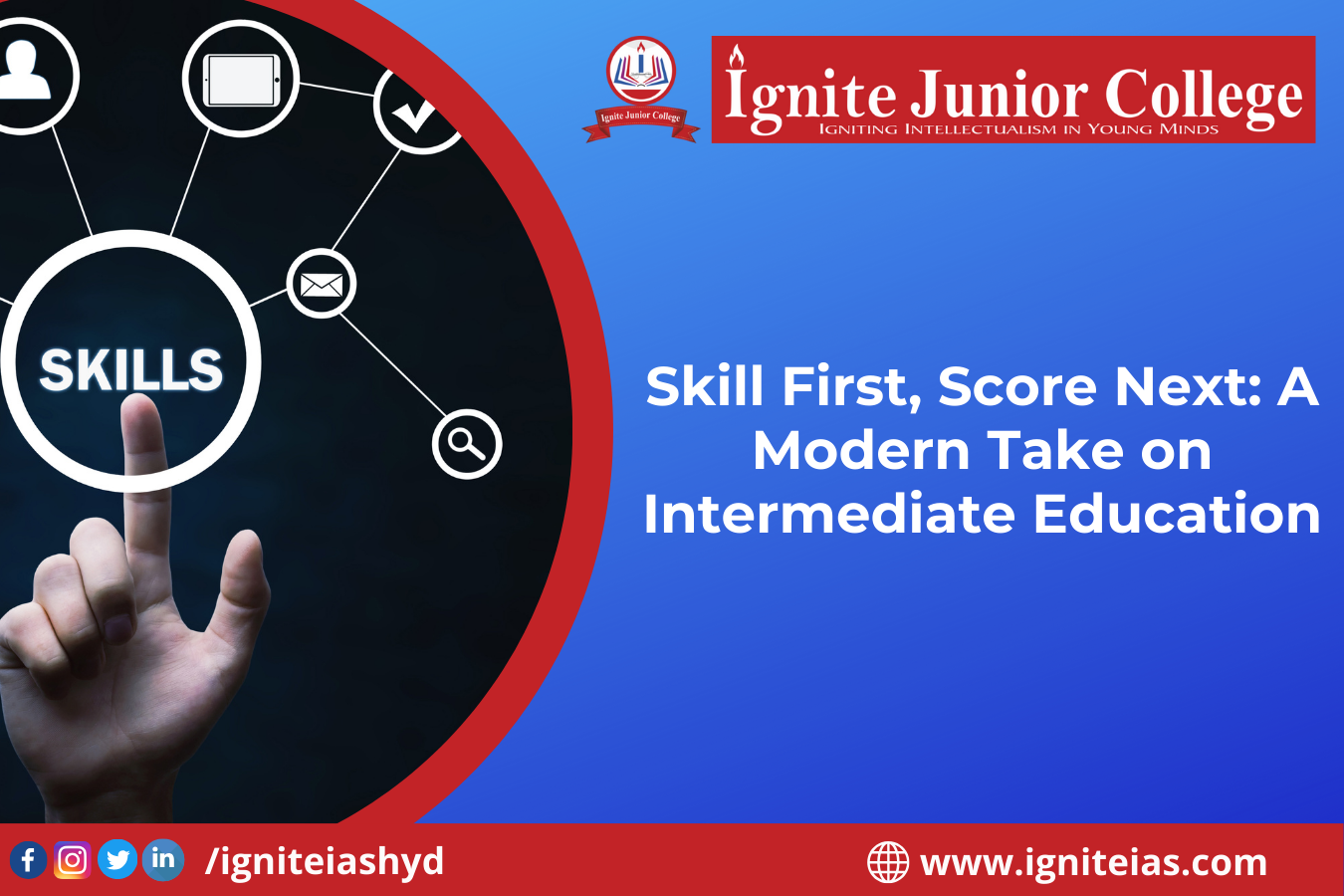Introduction
When was the last time you stopped to ask why something is the way it is?
If you’re a parent or a student, this question isn’t just philosophical—it’s essential. Because in today’s fast-moving, hyper-connected world, the students who succeed aren’t just those who memorize answers, but those who question intelligently, analyze deeply, and think critically.
At Ignite Junior College, we believe in more than grades. We believe in mindsets. And among them, critical thinking stands tall as the superpower every young mind needs in their formative years.
Let’s explore how developing this mindset early can shape confident, capable, and creative individuals—and how Ignite makes that happen every single day.
1. What is Critical Thinking and Why It Matters
Critical thinking is the ability to think clearly and rationally, understanding the logical connection between ideas. It’s not about what to think—but about how to think.
In a world full of information, it’s this skill that helps students:
- Distinguish facts from opinions
- Solve problems strategically
- Communicate with clarity
- Make informed decisions
2. Traditional vs. Critical Learning: The Key Difference
Traditional education often focuses on rote memorization—recall and reproduce. Critical learning, however, is about:
- Interrogating concepts
- Challenging assumptions
- Evaluating multiple viewpoints
At Ignite, we actively bridge this gap by encouraging curiosity and dialogue over silence and submission.
3. Why Junior College is the Right Time to Start
The ages of 16–18 are a formative period, where students are not only making academic choices but also forming worldviews. At this stage, developing a mindset that promotes:
- Inquiry
- Reflection
- Reasoning
gives them a strategic advantage for college, career, and life.
4. Ignite’s Vision: Education that Makes You Think
At Ignite Junior College, critical thinking is more than a buzzword. It’s a pillar of our academic culture. Our approach to nurturing this includes:
- Question-driven teaching methods
- Open-ended discussions
- Continuous feedback and guided inquiry
5. Classrooms That Ask More Questions Than They Answer
A critical thinking classroom at Ignite isn’t a quiet place. It’s alive with questions like:
- “What are the consequences of this policy?”
- “Can there be more than one correct answer?”
- “What assumptions are we making here?”
Such questions foster an environment where curiosity becomes the compass.
6. The Role of Case Studies, Simulations & Problem Solving
Whether it’s solving a business case in MEC or understanding chemical reactions in MPC, our students regularly apply concepts to real-world-like scenarios. This:
- Makes learning memorable
- Teaches analytical and lateral thinking
- Prepares students for entrance tests and interviews
7. Debate, Dialogue & Discussion Forums
We host weekly:
- Debates on social, economic, and political issues
- Group discussions that develop articulation and listening
- Critical dialogue circles that help challenge groupthink
Here, opinions are welcome—but reasoning is essential.
8. Real-World Applications Through Projects
From researching sustainability practices to conducting local surveys, students:
- Learn to plan, gather data, and present findings
- Draw conclusions based on evidence
- Understand the importance of ethics in research
9. Encouraging Independent Thought in Every Subject
Whether it’s:
- Crafting personal essays in English
- Analyzing trends in Economics
- Designing experiments in Science
We allow room for interpretation, creativity, and alternative perspectives.
10. Interdisciplinary Learning at Ignite
Critical thinking thrives when students connect the dots. That’s why we encourage them to explore:
- The intersection of History and Civics
- The relationship between Math and Economics
- The ethics behind scientific discovery
Such learning expands their worldview and nurtures flexibility in thought.
11. Mentor-Led Critical Thinking Sessions
Our faculty members aren’t just lecturers. They’re mentors trained to:
- Guide Socratic discussions
- Encourage respectful disagreement
- Nurture intellectual humility
These sessions help students own their learning process.
12. How Exams and Assessments Foster Analysis
We move beyond rote-heavy exams by:
- Including application-based questions
- Promoting open-book tests
- Assessing thinking, not just recall
The result? Students who understand, not just remember.
13. Student Clubs that Promote Thinking Beyond the Textbook
Clubs like:
- Ignite Thinkers (for philosophical debates)
- Future Leaders (policy-based simulations)
- TEDx Ignite (ideas worth sharing)
give students platforms to express, explore, and evolve their minds.
14. Inspiring Stories of Students Who Changed Their Perspective
- Harini, who used logic and empathy to design a mental health awareness campaign.
- Siddharth, who explored economic inequality through a mini-documentary.
- Asma, who challenged gender stereotypes in her sociology project.
All started with one thing: thinking differently.
15. Conclusion: Thinking is the First Step to Leading
At Ignite Junior College, we don’t just teach students what to learn—we show them how to think, challenge, and grow.
Because mindset matters. And a mind trained to think critically becomes a life that leads courageously.
FAQs
1. Can critical thinking be taught at the intermediate level?
Absolutely! With the right teaching approach and environment, students in junior college can develop powerful analytical and reasoning skills.
2. Will this mindset help in competitive exams like CLAT or IPMAT?
Yes. Critical thinking is crucial for entrance exams that require comprehension, analysis, and logical reasoning.
3. What methods does Ignite use to encourage critical thinking?
From debates, group discussions, case studies, real-world projects, to interdisciplinary learning—every aspect of our teaching is designed to provoke thought.
4. Is there room for creativity alongside critical thinking?
Definitely. At Ignite, we believe that critical thinking and creativity go hand in hand—they’re two sides of the same coin.
5. How does this benefit students after junior college?
Students develop the ability to adapt, argue constructively, analyze deeply, and make smart decisions—skills that are invaluable in college, careers, and life.


